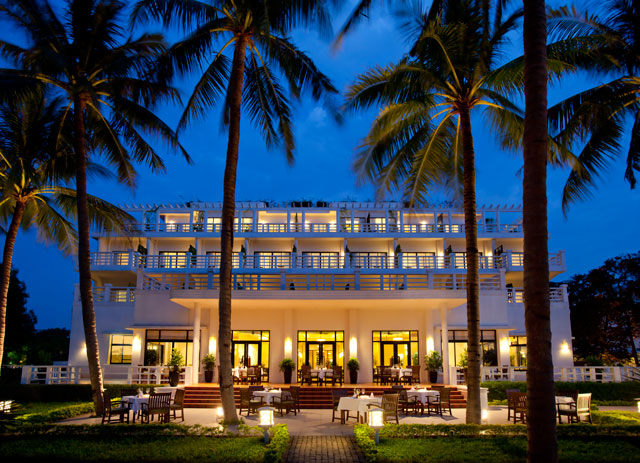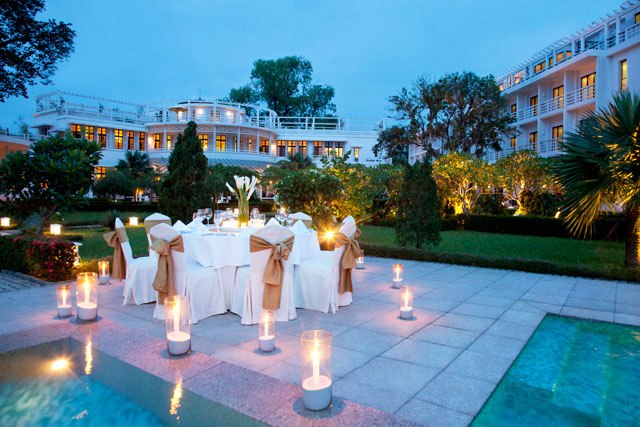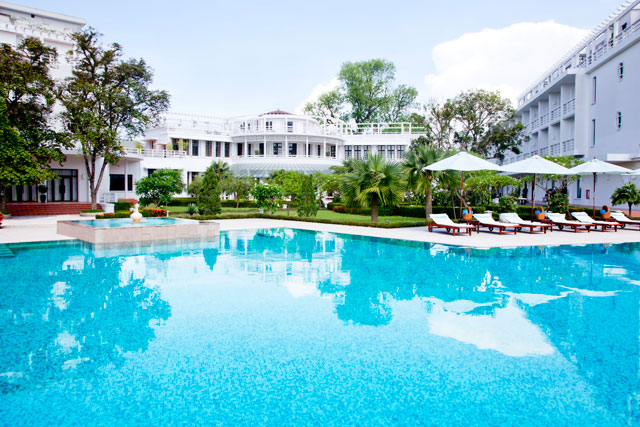Experience the transcendent nature of Hue and its intriguing history while using La Résidence Hotel and Spa Hue as a beautiful starting point
By Massimo Morello
A spiritual landscape – this is how French town planner Myriam Laidet describes Hue. She is not referring solely to its monumental citadel and imperial tombs, however, which are World Heritage sites. Everywhere in this town, there is a spirit of harmony that exists between man and nature – the expression of the Asian aesthetic ideal.

It is no coincidence that the name Hue is derived from the term “hoa”, which can be translated as “peace” or “harmony”. “Lying on the spine of the land, between the mountains and the river, where the dragon takes shelter and the tiger rests, in a beautiful blessed location, this site deserves to be the home of kings,” wrote Le Quy Don, poet, philosopher and politician, before Hue became the capital of the Vietnamese Empire in the 18th Century. Since then, the city has been one of the country’s religious and artistic hubs, perpetuating a culture that nurtures poets, musicians and intellectuals. At the heart of the Route Mandarine, Hue was also a focal point in the history of French colonialism, due to both its strategic position between north and south and its Orientalist atmosphere.
That refined Indochinese elegance manifests itself in art deco – an eclectic style that was en vogue in 1920s and 1930s France and is influenced by the “primitive” arts, as well as by Modernism and Orientalism – at La Résidence Hotel and Spa.
Situated on the banks of the Perfume River, the hotel was developed out of the 1930s-era colonial mansion that belonged to the governor of Annam (now Central Vietnam). In 1954, following the French defeat at Dien Bien Phu, it was converted into living quarters for Communist Party guests.
Finally, in the Vietnam of the doi moi renewal campaign, it became Hue’s first “boutique hotel”. The label is justified, thanks to its impeccable restoration, right down to the last detail, in which Art Deco fuses with the Indochina style, best expressed at the hotel’s Le Spa.
The most beautiful rooms at La Résidence are in the original building, but all, even those in the two side wings, enjoy breath-taking views over the river or the walls of the Imperial Citadel. The Le Gouverneur bar is a wonderful setting in which a champagne-sipping femme fatale would look right at home. And, after a tipple or two, all that remains is to take a seat at one of the elegant tables in Le Parfum, the hotel’s gourmet restaurant, where talented chefs serve up creative Asian and European menus.
Out and about
La Résidence keeps Vietnamese tradition alive with a gourmet programme called It’s a Colonial Life. The activity-based line-up includes a range of options that span picnic lunches on the panoramic Thien An Hill to romantic dinner cruises on the Perfume, or Huong, River.
Sweet sounds
In 2003, Unesco recognised 28 forms of traditional art as World Heritage. Included on the list was nha nhac, or Vietnamese “court music”. Literally meaning “elegant music”, its origins go back to the early 15th Century. A number of different nha nhac performance styles exist, with artistes wearing elaborately designed costumes. The concierge at La Résidence can provide information on performances and make bookings.
Top it off
The non la – the traditional conical hat that has become synonymous with Vietnam – is associated with Hue, particularly in the form of the so-called “poets’ hats” as, when held against the light, they reveal scenes of traditional life. These hats can be bought at Dong Ba market on the northern bank of the river, but it is more interesting to seek them out in the production quarters of Phuoc Vinh and Vinh Loi.
Sea of trees
Hue is a treasure trove of nha vuon, or “houses with a garden”; though it would be more fitting to call them gardens with a house. The La Résidence concierge can help arrange tours. Of particular interest is Tinh Gia Vien (Le Thanh Ton 7/8), first the home of a princess, then of a mandarin. In 1979, musician Nguyen Van Huu Van purchased the property and transformed the garden using 300 bonsai trees.
Sent from above
Along the Perfume River, on the hills surrounding Hue, sit the tombs of the emperors, the most evocative legacy of the Nguyen Dynasty. While still living, the rulers were committed to building their own paradise on Earth. Take a river excursion, departing in the morning and returning late in the afternoon, so you can enjoy the sights and sunset while on board.
Essentials
Tel. +84 543 837 475. Website: la-residence-hue.com. Rates: from $150 to $532 per night. Suggested accommodation: the deluxe colonial in the stylish Governor’s Mansion, from $190 per night.
